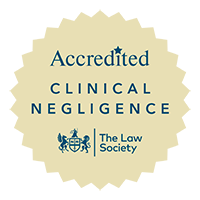Top ranked cerebral palsy claims lawyers

Boyes Turner’s cerebral palsy birth injury specialists have secured a £7.49 million* settlement for an 11-year-old girl whose negligently delayed delivery left her with permanent brain damage and severe four-limb dystonic cerebral palsy. The settlement concluded the claim which had been adjourned following a liability judgment until the child was old enough for the extent of her disability to be properly assessed. In the meantime, interim payments exceeding £2 million were obtained to provide essential care, equipment, therapies and adapted accommodation.
The settlement while in no way reflecting the pain caused by this tragedy does provide our client’s parents and family with the certainty that sufficient funds will always be available to meet our client’s extensive needs as a consequence of her injury.
The labour
Our client’s mother was admitted to the defendant hospital in labour after spontaneous rupture of her membranes the previous night. Continuous fetal heart monitoring by CTG was set up and remained in place from the morning of her admission until the baby’s delivery the same night. For three hours that afternoon the CTG trace (which demonstrates fetal wellbeing or compromise from the fetal heart rate pattern alongside maternal contractions) was categorised ‘suspicious’, after a prolonged deceleration was noted in the fetal heart-rate (FHR). The midwife asked the midwifery sister to review the trace but the records give no indication that the requested review take place.
Pathological signs of fetal distress on the CTG
By the time the labour had reached the second stage (when the cervix is fully dilated and the mother starts to push) the CTG trace showed prolonged variable FHR decelerations, absent accelerations, and tachycardia (abnormally high heart-rate) in excess of 200 bpm. This was a ‘pathological’ CTG pattern indicating fetal distress. Correct maternity care at this stage would have been to expedite the delivery by performing an instrumental (forceps or Ventouse) delivery or caesarean section. The obstetric registrar was called to review the CTG trace but, instead of taking steps to deliver the baby, the doctor allowed the labour to continue.
The pathological FHR pattern on the CTG trace continued for a further hour and a half, throughout which second stage of labour was allowed to continue, with the obstetrician repeatedly deferring the decision to expedite delivery despite continued evidence of fetal distress and signs of a rising maternal temperature. Only when the CTG revealed that unborn baby’s heart-rate had dropped to a dangerously low bradycardia - a sign of terminal decline as the baby’s brain becomes permanently damaged - was the mother transferred to theatre for an emergency caesarean section.
Delivery ten minutes sooner would have avoided permanent brain injury
The baby was born in poor condition having suffered an acute period of profound hypoxic ischaemia which damaged her brain, leaving her permanently disabled. The injury to her brain occurred in the final few minutes before birth and would have been avoided if she had been delivered just ten minutes earlier.
Our client has severe four-limb cerebral palsy with significant motor impairment. She is fed by gastrotomy and is doubly incontinent. She will be totally dependent on others for all her needs throughout her shortened life.
The negotiated settlement will provide our client with a £4.3m lump sum to meet capital costs and contingencies, in addition to guaranteed annual periodical payments (PPO) for care and case management rising from £158,000pa to £200,000pa in accordance with her increasing age and need.
If you are caring for a child or young adult with cerebral palsy or other serious neurological disability and would like to find out more about making a claim by emailing us at cerebralpalsy@boyesturner.com.
They have a great deal of knowledge and expertise, and client care seems to be their top priority.
Chambers Guide to the Legal Profession
Contact our expert Cerebral Palsy solicitors today for support with your claim




